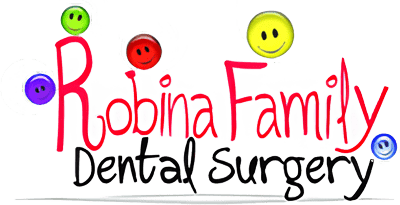Believe it or not, modern orthodontics was invented in the 1700s. But dental braces orthodontic technology have never been more advanced than it is today.
Adult braces have become a growing trend in recent years. Whether you’re a teenager or an adult, impeccable dental hygiene is required when you’ve got braces on so here are a few tips on how to take care of your braces.
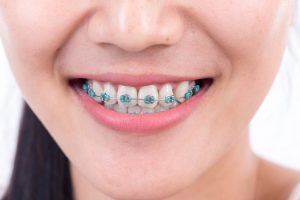
Brush Up on Your Technique
Brushing your teeth twice every day is already important without braces. With braces, it’s important to be thoroughly brushing your teeth after every meal as your braces trap food particles very easily. The brackets and archwires make brushing teeth in the conventional way difficult so a different approach needs to be taken when brushing your teeth with braces:
- Remove any elastics or other orthodontic appliance that are easily removable
- Start with your top teeth
- Start brushing at the gum line first (at a 45 degree angle towards your gums)
- Then brush at a downward 45 degree angle towards the top of the brackets and then at an upward angle towards the bottom of the brackets, effectively cleaning around the braces
- After cleaning the outer surfaces of the top teeth, clean the inner surfaces in a gentle, circular motion
- Once your top teeth are done, move onto your bottom teeth, repeating a similar pattern: gum line, upward angle towards bottom of brackets, downward angle towards top of brackets, then inner surfaces
- Make sure to clean each tooth individually, dedicating around 10 seconds per tooth (outer and inner surfaces combined)
You can use both manual and electric toothbrushes, so long as the bristles are soft and you’re not pressing too hard.
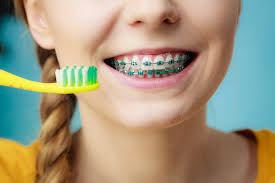
The Fuss Over Floss
Flossing can be trickier than brushing when it comes to braces but there are definitely easy solutions. Again, you should be flossing after every meal as braces are notorious food traps and that makes you susceptible to gum disease and fast plaque build-up.
Thread the floss between your teeth and archwire to get access in between all your teeth. Your orthodontist and/or dentist will be able to show you this technique when you’re at the dental surgery. If you find this method difficult, you can use floss threaders or interdental brushes (which you can buy at a local pharmacy or even supermarket).
Remember to be gentle when you floss as flossing too vigorously can damage your sensitive gums.
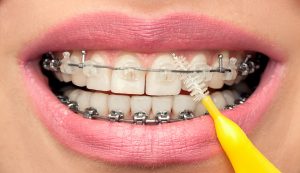
Hard to Stomach
There are some foods which should be avoided while you’re wearing braces as they can damage the wires. Food no-nos include:
- Anything too hard (like boiled lollies, hard raw vegetables, or even chewing on pens – these can potentially break the archwires)
- Anything too sticky (like chewing gum or chewy caramel toffees which can get stuck under the wires and even tear them off your teeth)
- Anything that can get easily trapped (like nuts or popcorn which get stuck in the food trap spots between the wires/brackets and teeth; making teeth cleaning harder)

Leave It to the Professionals
Visiting your dentist and orthodontist regularly is key. Your dentist will help pick up any issues, such as early signs of cavities or gum disease, and they will also give your teeth a professional clean.
On top of your routine orthodontic adjustment, you may feel some tightness and discomfort, and if that pain gets worse or becomes extreme, you should definitely consult with your orthodontist. If any of the components of your braces or the orthodontic appliances gets broken or you find issues with them, you should also speak with your orthodontist to hear what they recommend.
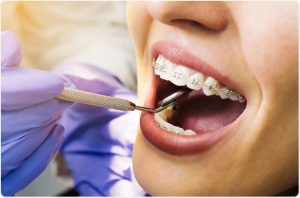
Guards for Braces
Mouth guards are needed for any contact sport and there are specialised mouth guards you can get custom-made from your dentist if you’re wearing braces. Mouth guards are essential because any trauma to your teeth while wearing braces may exacerbate the damage if the brackets and wires cut the soft tissue of your lips, cheeks, tongue, or gums.
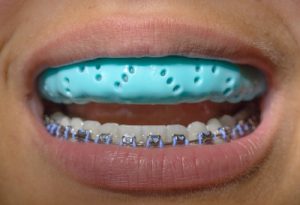
Wax and Wane
You may find the pins or brackets particularly uncomfortable on your cheeks or lips, as they may be chafing or creating ulcers on the soft tissue. If you experience this, ask your orthodontist for some special wax that you can mould over the problem areas to create a barrier between your flesh and the braces. You’ll need to remove both the special wax and any elastics before you eat so you don’t accidentally swallow the wax with it (though most waxes won’t pose a problem if you unknowingly ingest it).


